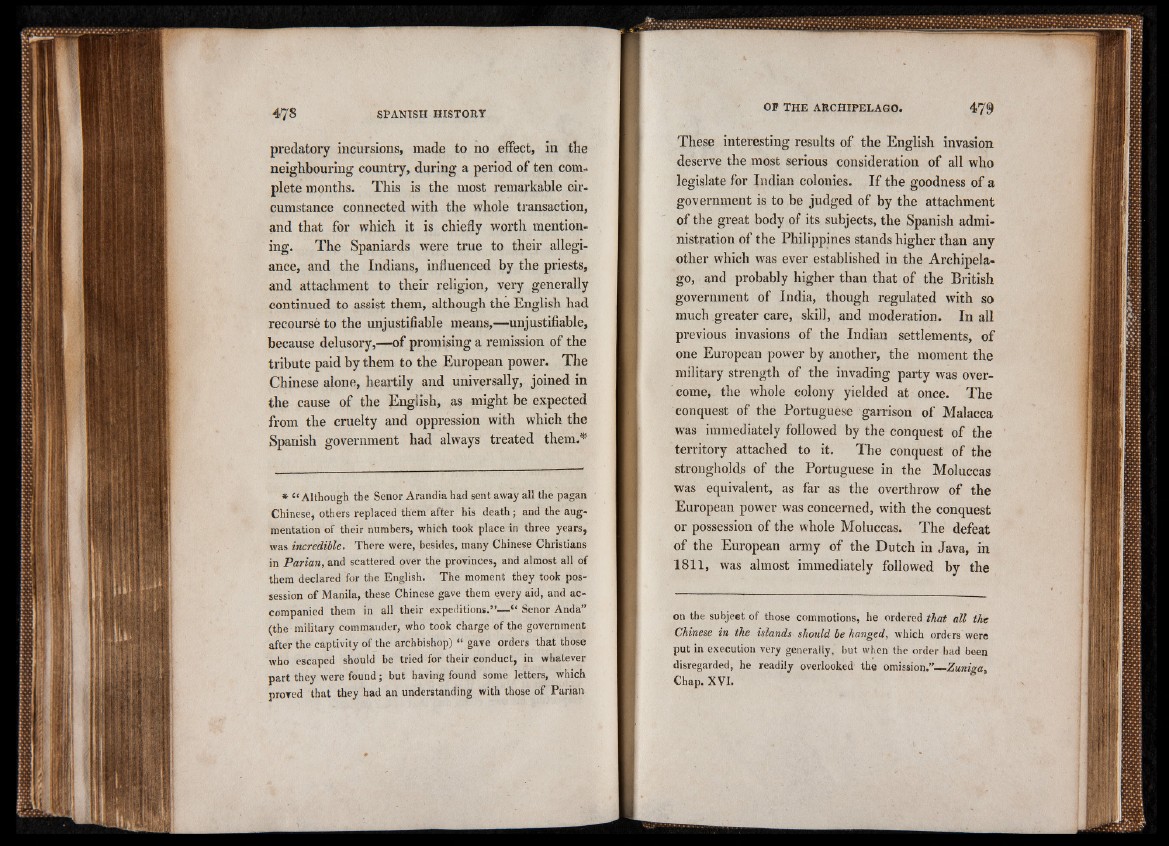
predatory incursions, made to no effect, in ttie
neighbouring country, during a period of ten complete
months. This is the most remarkable circumstance
connected with the whole transaction,
and that for which it is chiefly worth mentioning.
The Spaniards were true to their allegiance,
and the Indians, influenced by the priests,
and attachment to their religion, very generally
continued to assist them, although the English had
recoursè to the unjustifiable means,—unjustifiable,
because delusory,—of promising a remission of the
tribute paid by them to the European power. The
Chinese alone, heartily and universally, joined in
the cause of the English, as might be expected
from the cruelty and oppression with which the
Spanish government had always treated them.*
* “ Although the Senor Arandia had sent away all the pagan
Chinese, others replaced them after his death; and the augmentation
of their numbers, which took place in three years,
was incredible. There were, besides, many Chinese Christians
in Parian, and scattered over the provinces, and almost all of
them declared for the English. The moment they took possession
of Manila, these Chinese gave them every aid, and accompanied
them in all their expeditions.”—“ Senor Anda”
(the military commander, who took charge of the government
after the captivity of the archbishop) “ gave orders that those
who escaped should be tried for their conduct, in whatever
part they were found; but having found some letters, which
proved that they had an understanding with those of Parian
These interesting results of the English invasion
deserve the most serious consideration of all who
legislate for Indian colonies. If the goodness of a
government is to be judged of by the attachment
of the great body of its subjects, the Spanish administration
of the Philippines stands higher than any
other which was ever established in the Archipelago,
and probably higher than that of the British
government of India, though regulated with so
much greater care, skill, and moderation. In all
previous invasions of the Indian settlements, of
one European power by another, the moment the
military strength of the invading party was overcome,
the whole colony yielded at once. The
conquest of the Portuguese garrison of Malacca
was immediately followed by the conquest of the
territory attached to it. The conquest of the
strongholds of the Portuguese in the Moluccas
was equivalent, as far as the overthrow of the
European power was concerned, with the conquest
or possession of the whole Moluccas. The defeat
of the European army of the Dutch in Java, in
1811, was almost immediately followed by the
on the subject of those commotions, he ordered that all the
Chinese in the islands should be hanged, which orders were
put in execution very generally, but when the order had been
disregarded, he readily overlooked the omission.”—Zuniga,
Chap. XVI.